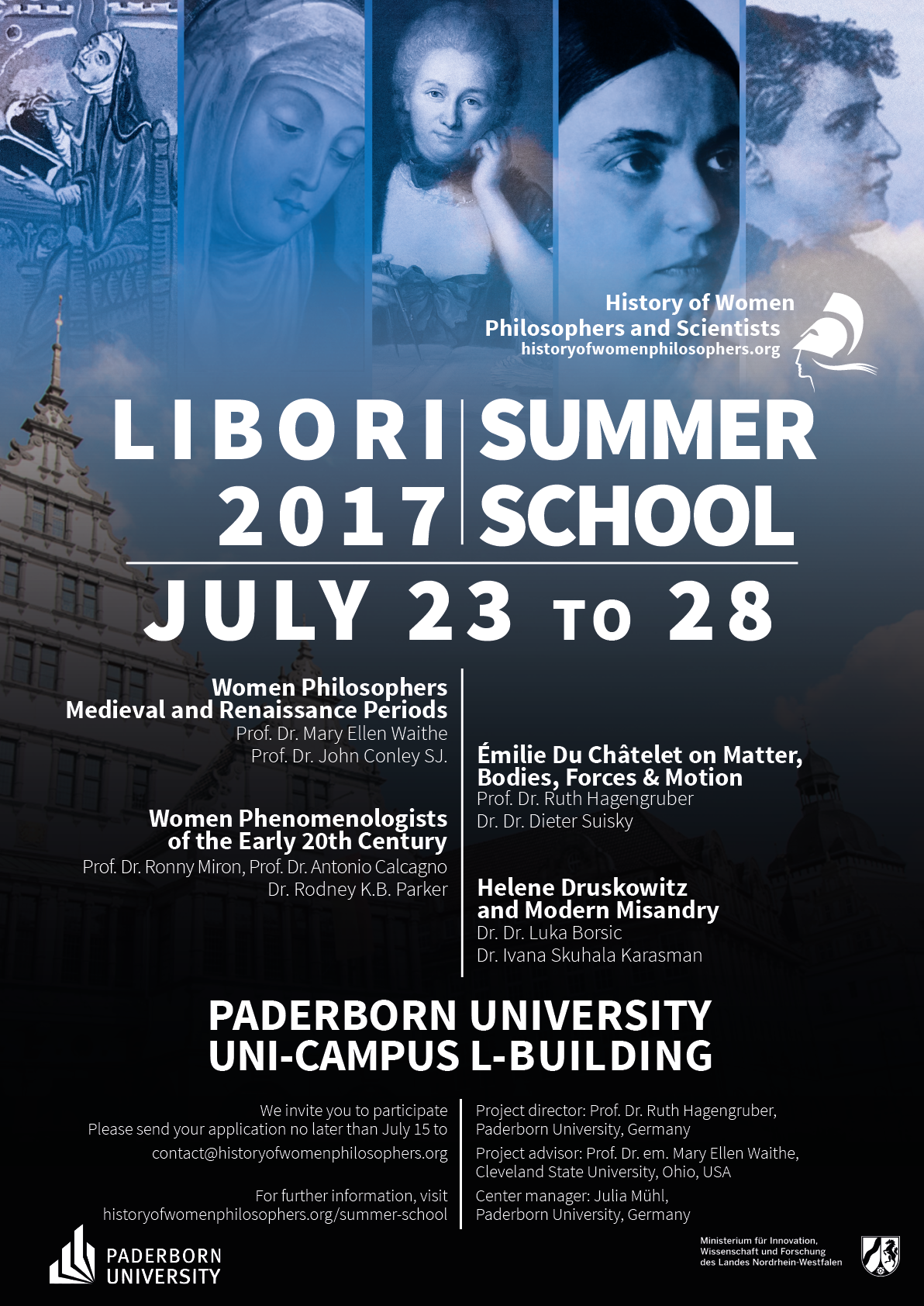
Émilie Du Châtelet on Matter, Bodies, Forces, and Motion
Summer School | all-day | Center for the History of Women Philosophers and Scientists
The Libori Summer School “Émilie Du Châtelet: Matter, Bodies, Forces, Motion” focuses on some of the chapters from Du Châtelet’s Institutions de physique (1740/42) within the context of the scientific thinking of her time.
In the early 18th century, the Dutch physicist Willem Jacob ‘s Gravesande, at Leiden University, performed a number of experiments wherein he dropped balls of different mass on soft clay, finding that if the heights from which the balls fell were inversely proportional to their masses, the indentations made by the balls would be the same. He concluded that the measure of the force of the impact on the clay is given by the weight times the velocity squared and that, in the case under consideration, equal forces are produced if the velocities squared are inversely the same as the masses. Gravesande communicated his results on the impact of falling weights to Émilie du Châtelet. In her Institutions de physique (1740/42), du Châtelet combined the practical observations of Gravesande to the Leibnizian idea of living forces in order to show that the energy of a moving object is proportional to the square of its velocity: “Maintenant, enfin, il y avait une justification forte pour considérer mv2 comme une définition féconde de l’énergie.”
The Libori Summer School on Émilie Du Châtelet aims to take a closer look at the complexities and interrelations between metaphysical reasoning, mathematical demonstrative methodology, and experimental philosophy beyond the outdated empiricism-rationalism scheme, focusing on the conceptual foundations and formations of theories of motion. This development can be best understood as emancipation from Cartesianism, Newtonianism, and Leibnizianism. Émilie Du Châtelet played a key role in this foundational change. Encouraged by the reception of Newton’s Principia in France after 1730 by Voltaire and Pierre Louis Moreau de Maupertuis and the experimental results obtained by Willem Jacob ‘s Gravesande, Du Châtelet constructed an advanced interpretation of Galileo’s experimental results in terms of early Leibnizian notions which was independent from Leibniz’ later metaphysics after 1680.
Language: The seminar will be held in English.
Organizer/ Lecturer:
Prof. Dr. Ruth Hagengruber (Paderborn University, Germany)
Dr. Andrea Reichenberger (Paderborn University, Germany)
Dr. Dr. Dieter Suisky (Humboldt University, Germany)
General information:
As the number of participants is limited to 15 for each course, please e-mail a one page letter of motivation and a brief curriculum vitae to contact(at)historyofwomenphilosophers(dot)org and cc to the lecturer andrea(dot)reichenberger(at)uni-paderborn(dot)de until July 15th, 2017.
A certificate of participation will be presented to you in the closing ceremony. Participation is free. Transport and lodgings have to be organized individually by the attendees. Please bear in mind, however, that the holiday season in Paderborn starts at the end of July. Therefore, we highly recommend to book rooms as soon as possible.

- DATE
- 24 - 28 July 2017
- TIME
- all-day
- COSTS
- none
- PLACE
- Universität Paderborn
-
Warburger Str. 100
Paderborn, 33098 Germany - Google Map
- INSTITUTION
- Center for the History of Women Philosophers and Scientists
- ATTACHMENTS
- ACCOMMODATIONS
-
St. Michaelskloster
Haus Maria Immaculata
Liborianum









 share
share tweet
tweet